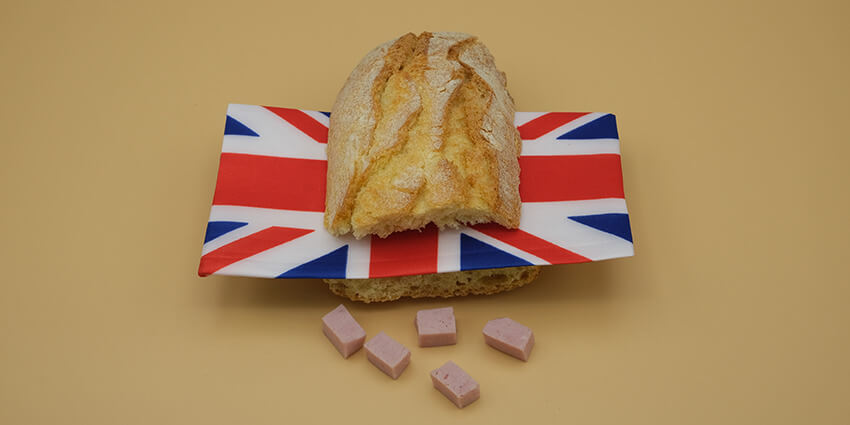
UK halal food industry being disrupted by Brexit
Brexit has impacted the sales, production and exports of British halal food, while red tape has driven up costs.
Britain’s halal food market maybe growing, but the UK’s withdrawal from the European Union (EU) in January 2020 has been impeding the sale, production and export of such products, and the regulatory headaches may get worse in future.
Speaking to Salaam Gateway, Rizvan Khalid, managing director, of Euro Quality Lambs, a major England-based producer and exporter of halal sheepmeat, said trade red tape imposed since the UK quit the EU has imposed £500,000 ($681,540) of annual regulatory costs on his business. The vast majority of this, some £400,000 ($545,232) is because Britain failed to negotiate mutual recognition of EU and UK sanitary and phytosanitary controls. With the EU now insisting on health and safety checks on any food exported from Britain to the EU, that means burdensome red tape for exporters such as Euro Quality Lambs, which is based in Shropshire, on the Welsh border.
While pre-Brexit halal meat shipments left the UK for France without border administration, Khalid noted how today his company needs to pay for veterinary checks for exporting from Britain; a lorry needs a special seal to prove it has not been opened before leaving the UK; special export and importing declarations are required; the company must warn French vets that a consignment is on the way; and with 15% of red meat consignments now being checked physically, consignments can be delayed for six to seven hours. That can be a problem for cargoes destined for the Rungis International Market, in Paris, which closes at 9am – if a lorry arrives later, its meat cannot be sold for another day, chipping into its sell-by date and potentially its market value. “It misses a day’s trading,” noted Khalid.
Luckily for Euro Quality Lambs and other UK halal meat exporters (70-75% of all lamb slaughtered in the UK is now halal, noted Khalid), global sheepmeat markets are currently tight, and with Britain remaining the world’s third largest lamb exporter (after New Zealand and Australia), demand for UK lamb, halal or otherwise, remains high in Europe – keeping sales and prices healthy.
But market conditions could decline, warned Khalid, with logistics already in poor shape because of a continent-wide shortage of lorry drivers (made worse in the UK because EU citizens no longer have an automatic right to work in Britain, tightening the labour supply). With the UK planning to introduce its own controls on EU exports to Britain of food from January, red-tape costs are likely to inflate supermarket prices, leaving UK consumers with less money to spend – an issue for halal lamb producers whose costlier product is competing against cheaper halal beef and poultry.
Dr Awal Fuseini, senior halal sector manager at the UK Agriculture and Horticulture Development Board (AHDB), stressed that Brexit has also impeded the recruitment of labour by the halal industry itself, because of UK visa requirements for EU citizens.
Another longer-term issue highlighted by Khalid is the new UK agricultural subsidy system, which is more focused on rewarding environmental performance than production, compared to the EU’s Common Agricultural Policy (CAP). This, added to the UK seeking to encourage younger people to become farmers, could reduce UK production of halal lamb, given sheep farmers – many of whom are in Wales and Scotland - tend to be older than their arable colleagues. “The UK is being more aggressive on the environmental side,” said Khalid.
These changes could disrupt the UK halal industry and market, with the AHDB noting that Muslims account for an estimated 20% of lamb consumption in England, even if Muslims now comprise 5.6% of England’s population (3.1 million people in 2016, according to the Office for National Statistics). Far fewer Muslims live in Scotland, Wales and Northern Ireland.
The UK halal market is substantial and growing, with the board saying that the UK halal food and beverage industry in 2016 generated receipts of an estimated £4.64 billion ($6.33 billion). This is particularly important for the meat industry, with halal consumers eating more meat per capita than the general population – for instance, more than 60% of halal consumers eat lamb at least weekly, compared with just 6% of the general UK population.
These consumers tend to shop at smaller ethnic stores, with supermarkets less widely used and only 27% of halal consumers regularly shopping at a supermarket for halal meat. By contrast, 81% of the UK general population use a supermarket weekly for buying meat.
Dr Fuseini said that while he doubts Brexit has significantly affected halal standardisation because “there is no government involvement” in it, future UK animal welfare rules may impact the sector. Until it left the EU, the UK had to comply with the EU regulation 1099/2009 ‘on the protection of animals at the time of killing’, which allowed religious slaughter. Now outside the EU, the UK “can now change its regulation” on animal welfare, and potentially ban certain halal-approved standards, “but we haven’t seen that yet”, he told Salaam Gateway.
That said, amendments now being proposed to the UK Animal Welfare Bill could reduce the ability of the British slaughterhouse industry to conduct non-stun slaughter, potentially reducing exports of such halal meat, even if religious ‘to order’ non-stun slaughter was still allowed.
Dr Amer Rashid, technical director at the UK Halal Certification Organisation (HCO), highlighted the potential controversies by stressing that gas stunning (should it be mandated among other stunning procedures) “is not accepted as halal by any of the major halal standards”. However, he said: “We know it is used to process halal poultry in some EU member states and imported into the UK.”
© SalaamGateway.com 2021 All Rights Reserved

Keith Nuthall and Andreia Nogueira